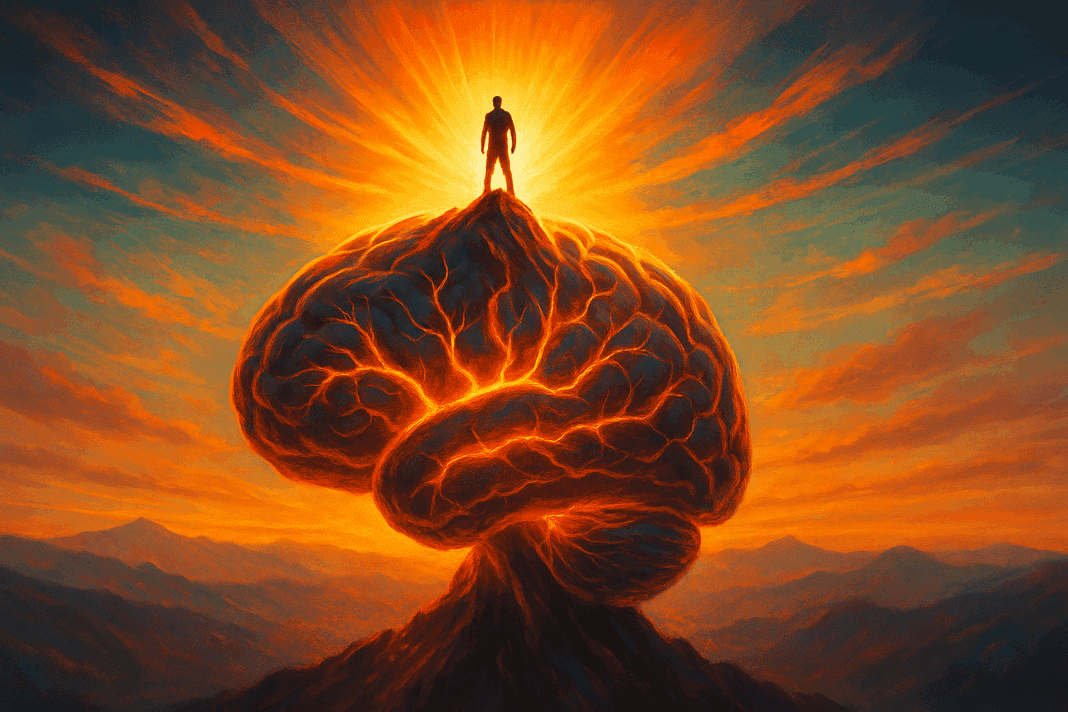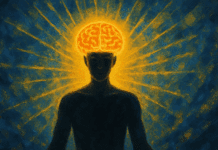In today’s world of relentless ambition and complex challenges, the desire to cultivate a resilient mindset is more relevant than ever. College graduates entering high-pressure work environments and seasoned professionals striving for continual growth alike find themselves seeking that elusive internal grit. This is where the secret of becoming mentally strong takes center stage. Not just a catchy phrase, it embodies a growing field of psychological and neuroscientific research that reveals how mental toughness isn’t an innate trait but a cultivated one. As we peel back the layers of science, experience, and actionable strategies, we begin to understand how becoming mentally strong is not only possible but essential for achieving peak performance.
You may also like: The Essential Mental Shift: How to Train Your Mind to Be Stronger for Peak Performance
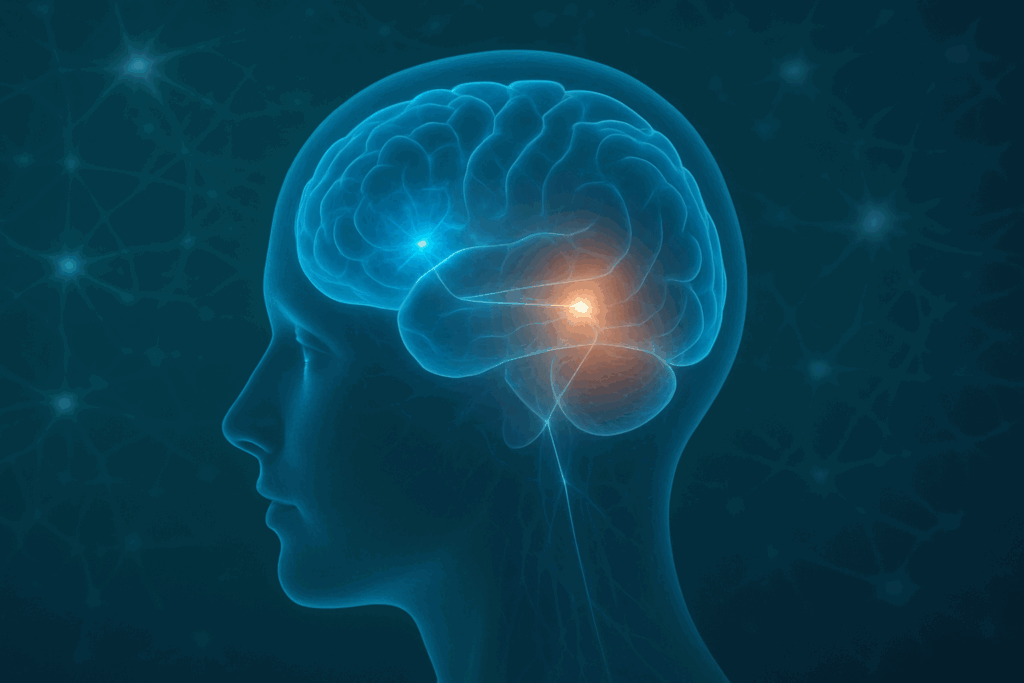
Understanding the Neuroscience of Mental Strength
Mental strength, while often attributed to willpower or sheer determination, finds its roots deep within the structures and chemical pathways of the brain. The prefrontal cortex, which governs decision-making and impulse control, plays a central role in the exercise of mental discipline. Meanwhile, the amygdala is closely linked to how we process fear and emotional responses. Mentally strong individuals often demonstrate a higher degree of connectivity and balance between these regions, allowing them to regulate emotional reactions more effectively.
Neuroplasticity, the brain’s ability to rewire itself in response to experience, supports the idea that mental strength can be developed through intentional practice. Studies have shown that mindfulness practices and cognitive-behavioral strategies can reinforce neural pathways associated with emotional regulation and adaptive thinking. Through consistent application, individuals build resilience by physically changing how their brain processes adversity.
Further, the production and regulation of neurotransmitters such as dopamine, serotonin, and norepinephrine contribute significantly to motivation, focus, and stress management. When these are maintained in balance, typically through a combination of healthy lifestyle choices and mindset training, individuals exhibit greater emotional control and drive. This convergence of biology and behavior underscores the importance of an integrated approach to developing mental fortitude.

The Secret of Becoming Mentally Strong: Core Psychological Principles
Delving into the psychological framework behind the secret of becoming mentally strong, one discovers a blend of cognitive resilience, emotional intelligence, and behavioral flexibility. At its core, mental strength hinges on one’s ability to perceive challenges as opportunities rather than threats. This shift in perspective is not simply motivational rhetoric but a validated principle of cognitive reframing.
Cognitive-behavioral therapy (CBT) techniques provide individuals with tools to identify distorted thinking patterns and replace them with balanced, realistic perspectives. This doesn’t mean ignoring difficult emotions, but rather understanding and managing them in a way that reduces their power to derail goals. Emotional agility, a term popularized by psychologist Susan David, complements this by encouraging individuals to accept their feelings without being defined by them.
Another cornerstone of mental toughness is the development of a growth mindset—a concept advanced by Carol Dweck. Those who believe their abilities can be developed through dedication and effort are more likely to persevere in the face of setbacks. This perspective fosters persistence, a critical component of long-term success and a key element in the formula for peak performance.
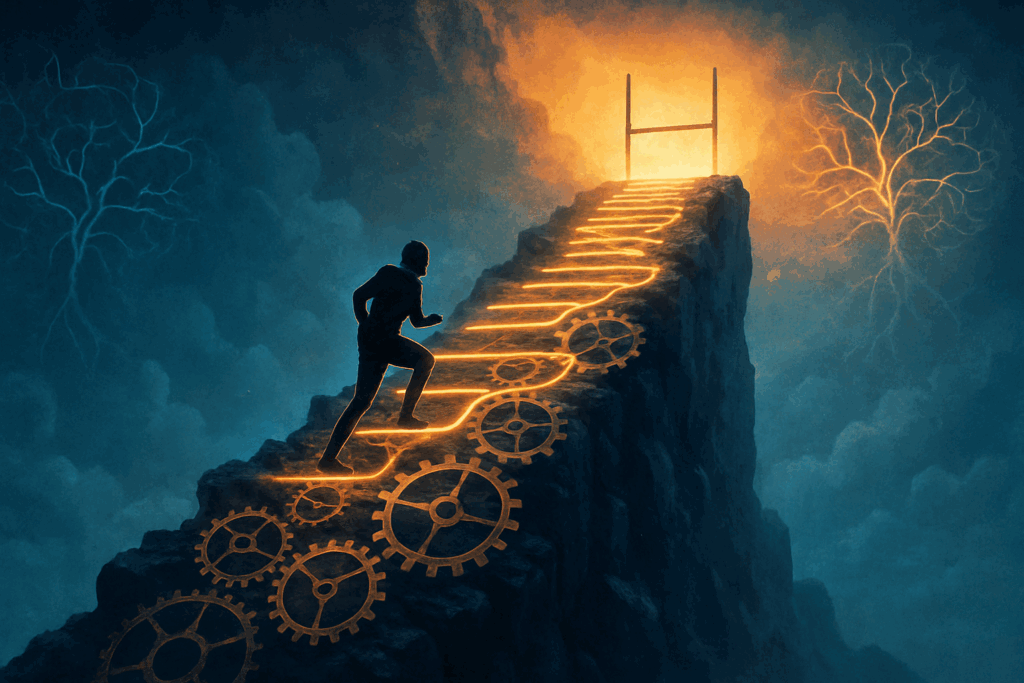
The Role of Discipline in Strengthening Mental Fortitude
Discipline is not merely about self-restraint or denying oneself pleasures. It involves the deliberate alignment of actions with long-term goals, often in the face of immediate discomfort. Developing this kind of discipline necessitates a clear understanding of one’s values and priorities, which act as a compass during moments of temptation or challenge.
One powerful method for enhancing discipline is the practice of implementation intentions, a strategy where individuals pre-plan responses to common obstacles. For example, someone striving to improve their physical fitness might decide, “If I feel too tired to work out after work, then I will go for a short walk instead.” This preemptive decision-making bypasses the willpower depletion that often leads to poor choices.
Moreover, consistent routines play a foundational role in discipline. Neuroscientific research shows that the brain expends less energy on habitual behavior, which can be leveraged to sustain productive actions over time. When beneficial behaviors become automatic, it frees mental energy for more complex decision-making and enhances overall self-regulation.
Building Resilience Through Purpose and Passion
Resilience, often conflated with grit, is better understood as the capacity to recover from setbacks, adapt to change, and keep going in the face of adversity. One of the most profound drivers of resilience is having a clear sense of purpose. When individuals are connected to a cause or goal that transcends personal gratification, they are more likely to persevere when times get tough.
Research into post-traumatic growth reveals that many individuals emerge stronger and more purposeful after significant life challenges. This transformation often involves re-evaluating core beliefs and discovering deeper meaning in one’s experiences. Cultivating a sense of purpose doesn’t necessarily require a life-altering event; it can be achieved through reflective journaling, goal setting, and volunteering for causes that align with one’s values.
Passion, when channeled constructively, also fuels resilience. Angela Duckworth’s work on grit emphasizes the importance of sustained interest in long-term goals. However, it is important to balance passion with flexibility, allowing for course corrections and avoiding burnout. This balance is a hallmark of mature mental strength, blending persistence with wisdom.

The Secret of Becoming Mentally Strong in High-Performance Environments
Whether in athletics, entrepreneurship, or academia, high-performance environments place exceptional demands on mental stamina. In these settings, the secret of becoming mentally strong reveals itself not just in moments of triumph but in how one navigates prolonged periods of stress, competition, and uncertainty.
Elite performers often use visualization techniques to mentally rehearse success and prepare for obstacles. This mental conditioning primes the brain to respond more effectively under pressure. Athletes, in particular, employ a combination of mindfulness and pre-performance routines to maintain focus and composure. These habits are transferable to any high-stakes field, including business and creative pursuits.
Moreover, high performers are meticulous about recovery. Contrary to the hustle culture mentality, peak performance is sustained not by constant exertion but by strategically integrating periods of rest and renewal. This aligns with the concept of oscillation—alternating between intense focus and deliberate recovery—which enhances both mental and physical performance over time.
Social support also plays an underrated but vital role. Mentally strong individuals often cultivate networks that provide encouragement, honest feedback, and perspective. These relationships act as buffers against stress and help individuals stay grounded amidst success and setbacks alike.

Lessons from the Amy Morin TED Talk on Mental Strength
Amy Morin’s TED Talk on mental strength has resonated with millions worldwide for its clear, practical advice and emotional depth. Drawing from her personal experiences and professional insights as a psychotherapist, Morin identifies habits that mentally strong people avoid, such as dwelling on the past, fearing change, or resenting others’ success. These avoidance strategies are as powerful as proactive techniques in building resilience.
What makes Morin’s approach especially compelling is its emphasis on self-awareness. By recognizing thought patterns and behavioral habits that erode strength, individuals can begin to replace them with empowering choices. This proactive self-regulation mirrors the principles of cognitive-behavioral therapy and reinforces the importance of intentionality in personal development.
Another critical takeaway from Morin’s message is the role of emotional balance. Rather than striving for perpetual positivity, she encourages embracing the full spectrum of emotions while maintaining control over one’s responses. This nuanced approach reflects a deep understanding of psychological health and serves as a foundational concept in the secret of becoming mentally strong.
The Secret of Becoming Mentally Strong Through Daily Practices
While major life events can catalyze growth, true mental strength is forged in the crucible of everyday choices. Establishing daily practices that support psychological resilience is a critical component of sustainable personal development. Journaling, for example, provides a structured outlet for reflection, helping individuals identify patterns, clarify goals, and process emotions.
Gratitude exercises, though often dismissed as simplistic, have a profound impact on mental health. Neuroscientific research shows that regularly focusing on what one is thankful for can shift baseline brain activity toward a more positive and resilient outlook. This shift enhances coping mechanisms and improves overall life satisfaction.
Physical activity is another powerful daily practice. Regular exercise not only benefits the body but also reduces anxiety, boosts mood, and improves cognitive function. The discipline required to maintain a fitness routine parallels the self-control needed in other areas of life, reinforcing a holistic approach to mental strength.
Meditation and mindfulness, once considered fringe practices, are now backed by robust scientific evidence. Even short daily sessions can reduce stress, increase focus, and foster emotional regulation. The cumulative effect of these practices creates a buffer against life’s challenges, enabling individuals to respond with calm and clarity.
Aligning Values and Actions to Foster Authentic Strength
One of the most underappreciated aspects of mental toughness is alignment—the degree to which one’s actions reflect core values. When individuals act in ways that are consistent with their beliefs and priorities, they experience greater self-respect and inner peace. This congruence fosters a deep sense of authenticity, which is itself a source of strength.
Misalignment, on the other hand, breeds internal conflict and drains mental energy. People who frequently compromise their values for external rewards often struggle with anxiety, burnout, and dissatisfaction. Thus, developing the courage to say no, set boundaries, and pursue meaningful goals is a hallmark of true mental strength.
This internal alignment also enhances decision-making. When choices are filtered through a values-based lens, ambiguity diminishes and confidence grows. Over time, this clarity reinforces a stable identity, which serves as an anchor during turbulent periods. In this way, the secret of becoming mentally strong is inextricably linked to self-knowledge and integrity.
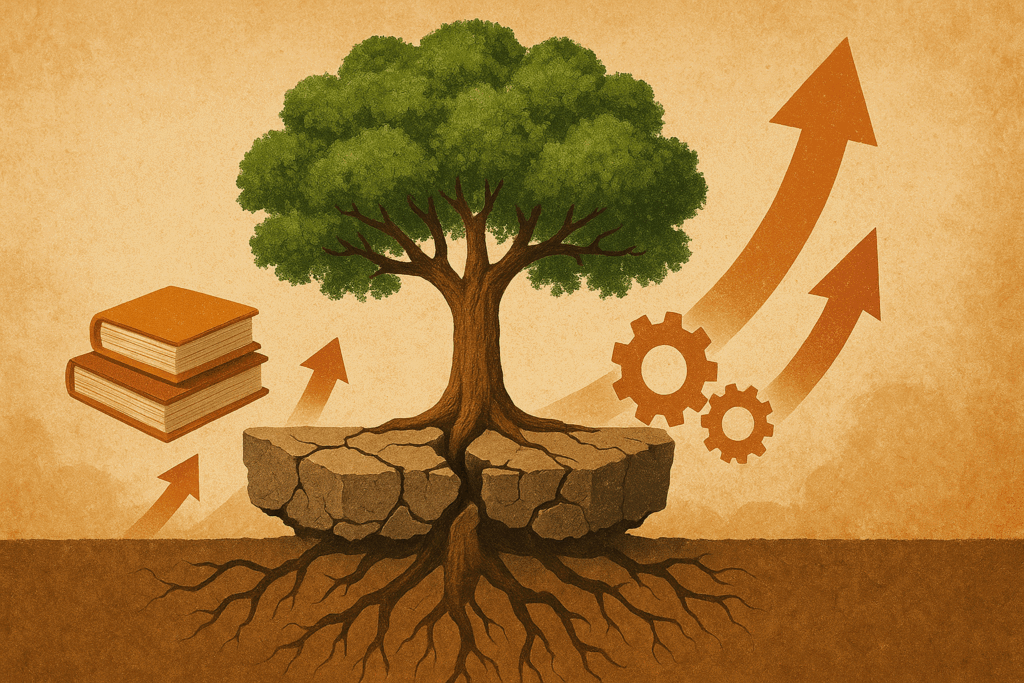
Unlocking Peak Performance by Redefining Failure
Failure is often feared and avoided, yet it is one of the most powerful teachers on the path to mental resilience. High achievers distinguish themselves not by avoiding failure, but by responding to it with curiosity and resolve. Reframing failure as feedback allows individuals to extract lessons and refine their approach without succumbing to shame or discouragement.
This mindset shift is supported by the science of neuroplasticity, which shows that learning is most effective when preceded by error. Mistakes stimulate brain activity in ways that strengthen memory and understanding. Thus, failure, when embraced constructively, accelerates growth and innovation.
Moreover, redefining failure requires detaching self-worth from outcomes. When individuals view themselves as evolving rather than fixed entities, they are more likely to take calculated risks and stretch beyond their comfort zones. This willingness to engage with uncertainty is a defining trait of mental strength and a prerequisite for peak performance.
The Secret of Becoming Mentally Strong: A Lifelong Journey
Despite popular portrayals, mental strength is not a destination but a dynamic process. It evolves through self-reflection, adversity, and continuous learning. Recognizing this shifts the focus from achieving perfection to cultivating progress, a mindset that is both liberating and empowering.
Lifelong learners often demonstrate greater adaptability and resilience. They seek out feedback, explore new perspectives, and embrace the discomfort of growth. These behaviors not only enhance performance but also enrich life satisfaction, relationships, and overall well-being.
Additionally, mentorship and community play essential roles in sustaining mental strength. Engaging with others who model resilience and provide support creates a feedback loop that reinforces positive behaviors. This social dimension highlights that while strength begins within, it flourishes in connection.
Frequently Asked Questions: Advanced Insights into the Secret of Becoming Mentally Strong
What are some lesser-known signs that someone is developing mental strength?
Beyond the obvious traits like perseverance and emotional control, subtle indicators often reflect deeper development. For example, a person who begins to enjoy constructive criticism rather than avoid it demonstrates an emerging openness to growth. Another sign is the conscious reduction of impulsive digital consumption—limiting doomscrolling or mindless app usage to preserve focus and energy. Also, someone practicing delayed gratification consistently, such as saving for a long-term goal rather than spending for short-term pleasure, is building foundational self-discipline. These behaviors, while not overtly dramatic, signal the internal shifts that define the secret of becoming mentally strong in daily life.
How does social comparison impact mental strength, and how can one manage it effectively?
Social comparison can severely undermine mental resilience if it leads to feelings of inadequacy or envy. However, when used constructively, it can offer benchmarks and motivation. The key lies in transforming envy into inspiration—recognizing others’ achievements as evidence of what’s possible, not a threat. One practical approach is setting boundaries with social media and practicing mindful consumption; intentionally curating feeds to include motivational, educational, and diverse content fosters a healthier mindset. Managing social comparison well is crucial to maintaining the momentum behind the secret of becoming mentally strong.
In what ways can journaling deepen emotional resilience and cognitive clarity?
Journaling acts as both a mirror and a microscope for our inner lives. It helps individuals externalize complex emotions, making them easier to analyze and manage. Advanced journaling techniques, such as expressive writing or gratitude synthesis (linking daily gratitude with long-term goals), can strengthen neural pathways associated with positive thinking. Furthermore, re-reading past entries provides concrete evidence of growth and pattern recognition, which is essential for breaking negative loops. When done consistently, journaling supports both introspection and direction—pillars in the structure of the secret of being mentally strong.
How can emerging technology assist in developing mental strength?
Innovative tools like biofeedback apps, emotion tracking software, and neurostimulation devices are revolutionizing personal development. For instance, apps that measure heart rate variability (HRV) can help users understand and train their stress responses in real time. Wearables can now monitor not only sleep and fitness but also offer meditation prompts based on stress detection. AI-powered platforms can simulate cognitive-behavioral therapy exercises, making mental health training more accessible. Integrating these tools into a personal development routine adds data-driven precision to the secret of becoming mentally strong in modern contexts.
What role does nutrition play in cultivating a mentally strong mindset?
While often overlooked, nutrition has a profound effect on brain function and emotional stability. Diets rich in omega-3 fatty acids, magnesium, and B vitamins—particularly B12 and folate—enhance neurotransmitter production and cognitive function. Emerging research also points to the gut-brain axis: an unhealthy gut microbiome can exacerbate anxiety and depression, directly interfering with emotional resilience. Intermittent fasting, when medically appropriate, has been linked to increased mental clarity and mood stabilization. By aligning dietary choices with cognitive performance, individuals reinforce the biological foundation of the secret of being mentally strong.
How can individuals sustain mental strength during prolonged uncertainty?
Mental strength during extended periods of ambiguity—such as economic instability or global crises—requires adaptive routines and flexible thinking. Micro-goal setting, which breaks large, uncertain outcomes into manageable daily tasks, creates a sense of control. Acceptance Commitment Therapy (ACT) techniques help individuals make peace with uncertainty without becoming paralyzed by it. Also, anchoring rituals like morning reflections or evening digital detoxes restore consistency amidst chaos. This is where the long-game application of the secret of becoming mentally strong truly shines, transforming disorientation into direction.
How does the amy morin ted talk redefine emotional intelligence in the context of mental strength?
The Amy Morin TED Talk offers a fresh perspective by framing emotional intelligence not as passive awareness, but as an active practice of mental discipline. Morin emphasizes that avoiding unhealthy habits—like self-pity or people-pleasing—is as crucial as cultivating positive behaviors. This reframing aligns emotional intelligence with boundaries, assertiveness, and emotional economy. Her message expands the traditional EQ model to include restraint, perspective-taking, and long-term emotional strategy. In doing so, the talk contributes significantly to the conversation around the secret of being mentally strong by anchoring emotional mastery in actionable habits.
Can mental strength be taught systematically in educational or corporate settings?
Absolutely, and several progressive institutions are already incorporating resilience training into curricula and professional development programs. Structured workshops combining cognitive-behavioral techniques, mindfulness practices, and peer discussion can foster collective growth. Programs inspired by the Amy Morin TED Talk often use her “13 Things Mentally Strong People Don’t Do” framework as a discussion and reflection tool. Gamified mental strength apps and role-play simulations further reinforce skill-building in engaging formats. When systems adopt a proactive stance, they demystify the secret of becoming mentally strong and make it an institutional value rather than an individual pursuit.
How does cultural background influence one’s interpretation of mental strength?
Cultural norms heavily shape perceptions of what it means to be mentally strong. In collectivist cultures, mental strength may emphasize endurance, emotional restraint, and communal harmony. Conversely, in individualist societies, it often focuses on assertiveness, self-expression, and personal achievement. These differences can lead to varying coping mechanisms, such as seeking social support versus fostering inner autonomy. It’s crucial to contextualize the secret of being mentally strong within a cultural lens to avoid imposing a one-size-fits-all model. A culturally sensitive approach fosters inclusivity while honoring the diverse expressions of strength.
How might the future of neuroscience reshape how we understand the secret of becoming mentally strong?
Advancements in real-time brain imaging and neural feedback will soon allow individuals to visualize mental habits and emotional responses as they occur. Personalized brain training programs, adapted from ongoing neurobiological assessments, could offer bespoke resilience-building routines. Epigenetics is also uncovering how lifestyle choices influence gene expression related to stress regulation and emotional balance. As these insights evolve, our understanding of the secret of becoming mentally strong will shift from abstract philosophy to precise, data-informed practice. This convergence of science and self-development will redefine not just what strength looks like—but how it’s built from the inside out.
Reflecting on the Secret of Being Mentally Strong for Long-Term Success
As we step back and consider the breadth of insights presented, one truth becomes evident: the secret of being mentally strong is both universal and deeply personal. It encompasses scientific principles, psychological strategies, and practical habits that anyone can adopt. Yet its application must be tailored to individual circumstances, values, and goals.
From the neurological underpinnings of resilience to the lessons from the Amy Morin TED Talk, the path to mental strength is rich with evidence and inspiration. Each strategy—be it cognitive reframing, mindfulness, disciplined routine, or purpose-driven living—acts as a piece of a larger puzzle. Together, they form a comprehensive blueprint for thriving in a complex world.
In embracing this journey, we not only unlock higher levels of performance but also cultivate deeper fulfillment and purpose. Mental strength, far from being a rare gift, is an accessible skill set that evolves through intention, action, and reflection. As we apply these principles, we come to embody the secret of becoming mentally strong in both our pursuits and our presence.
Further Reading:
When tough isn’t enough, build mental strength. Here’s how
The Secret of Becoming Mentally Strong | Amy Morin | TEDxOcala
The Secret of Becoming Mentally Strong-TED Talk by Amy Morin-A therapist


